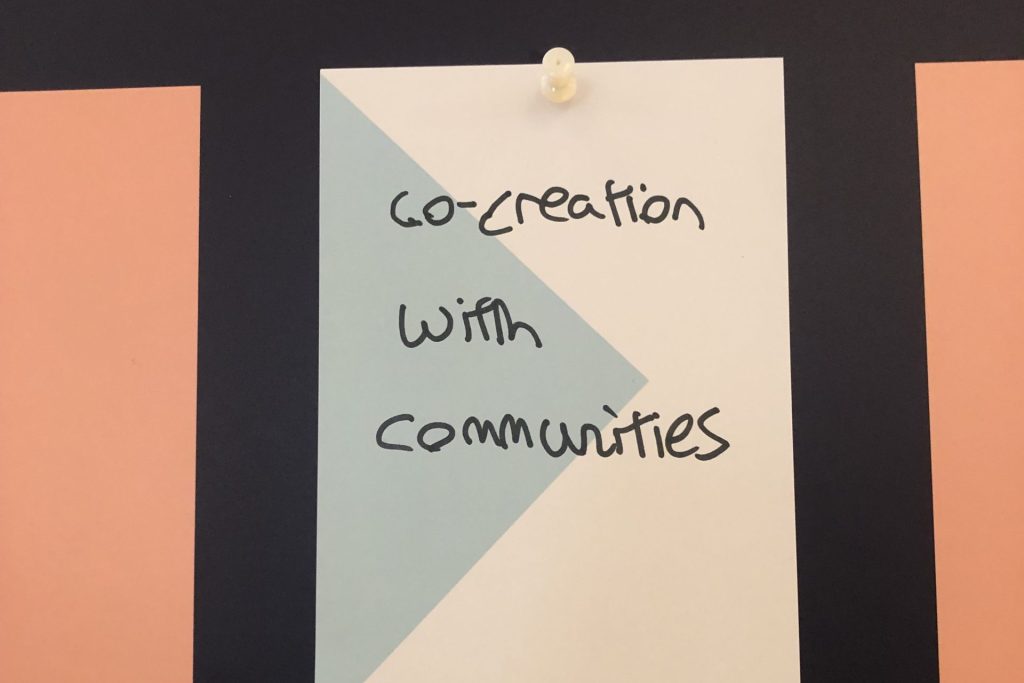
Helen Apsey is AHRC Creative Communities Policy Lead. She took part in Policy Live in September 2024.
Policy Live is a one-day event. Attended by over 300 policy experts, it explored policy solutions to the UK’s biggest challenges, with influential leaders and emerging voices from Government, civil service, NGOs, and the private sector. It covered a broad range of topics, including mission-driven Government, economic growth, health, and net zero.
The session on ‘Challenge prizes in mission-driven innovation’ provided insight into Challenge Works, Nesta’s challenge prize enterprise, and how they use best practice when using prizes to drive innovation. The session explored how challenge prizes can be strategically integrated into mission-driven policymaking, to bridge the gap between objectives and tangible progress. Team members pitched prize opportunities aligned with the Government’s missions on clean energy, economic growth, and an NHS fit for the future, to demonstrate how this could work in practice.
In the session on ‘The critical but overlooked phase in the education system’, Education Policy Institute discussed the link between economic disadvantage and poor educational outcomes in 16-19 education, a critical but overlooked phase in the education system. The team presented research on post-16 disadvantage gaps including the role of long-term poverty and geographic inequalities. They then presented policy solutions, including the case for a student premium and how this could be implemented. The session offered insights into how disadvantage can have long lasting impacts in later life and the necessity for data-sharing, a robust evidence base and ongoing accountability to help address this.
In the session on ‘Understanding public support of net zero policies’, the Behavioural Insights team shared learning from their work with Nesta and the European Climate Foundation on public attitudes towards net zero policies. The team outlined the key role of building public support in ensuring policy success, as reaching net zero is heavily dependent on widespread behaviour change in how people travel, heat their homes and the food they eat. This was a fascinating insight into the role that communication, public engagement, incentives and financial support, fairness, upstream policies targeting businesses, timelines and milestones, protections, and in some cases exemptions, can play in increasing policy support.
The panel discussion on ‘Growth: the defining mission’ was chaired by Group Chief Executive Officer of Nesta and BIT, Ravi Gurumurthy, with panellists Professor Dame Diane Coyle, Giles Wilkes, Ben Southwood, and the Rt. Hon. Jeremy Hunt. The panel explored how Labour can capitalise on their momentum to set a new path for growth over the next 18 months. They discussed the issue of policy churn, companies redoing the same work, loss of human capital when people change jobs, along with mechanisms needed to retain knowledge and the benefits of giving capitalism a shot. The immense value of the creative sector was highlighted by Professor Coyle, at 6% GDP, and the question posed of where else this success might be replicated.
The event topics aligned closely with the AHRC Creative Communities programme and its focus on mission-led policy co-creation on the themes of Health and Wellbeing, Environment, Skills, and Belonging. This work is being developed in our 4 nations Policy Labs and the work of our UK-wide Community Innovation Practitioners.
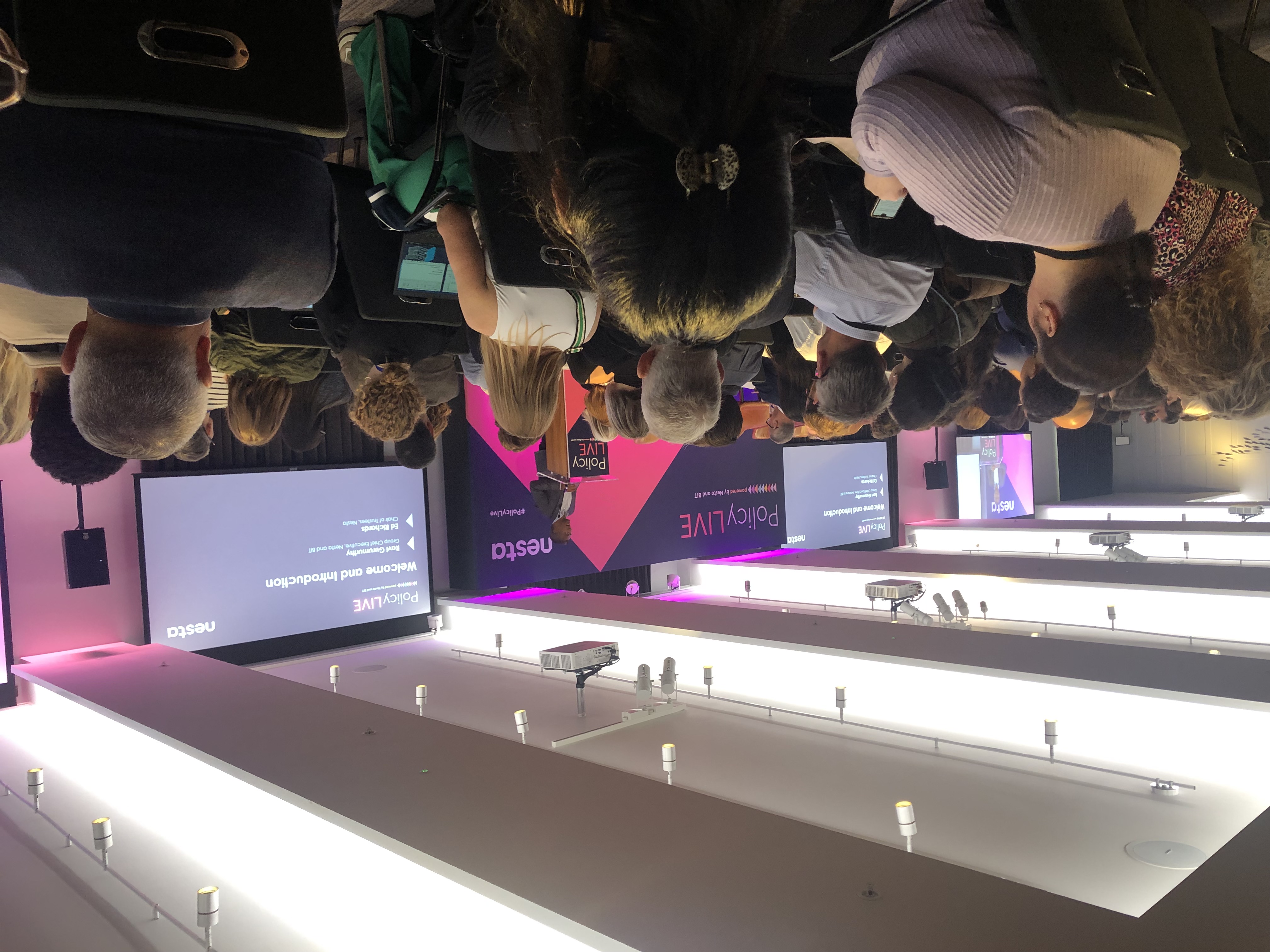
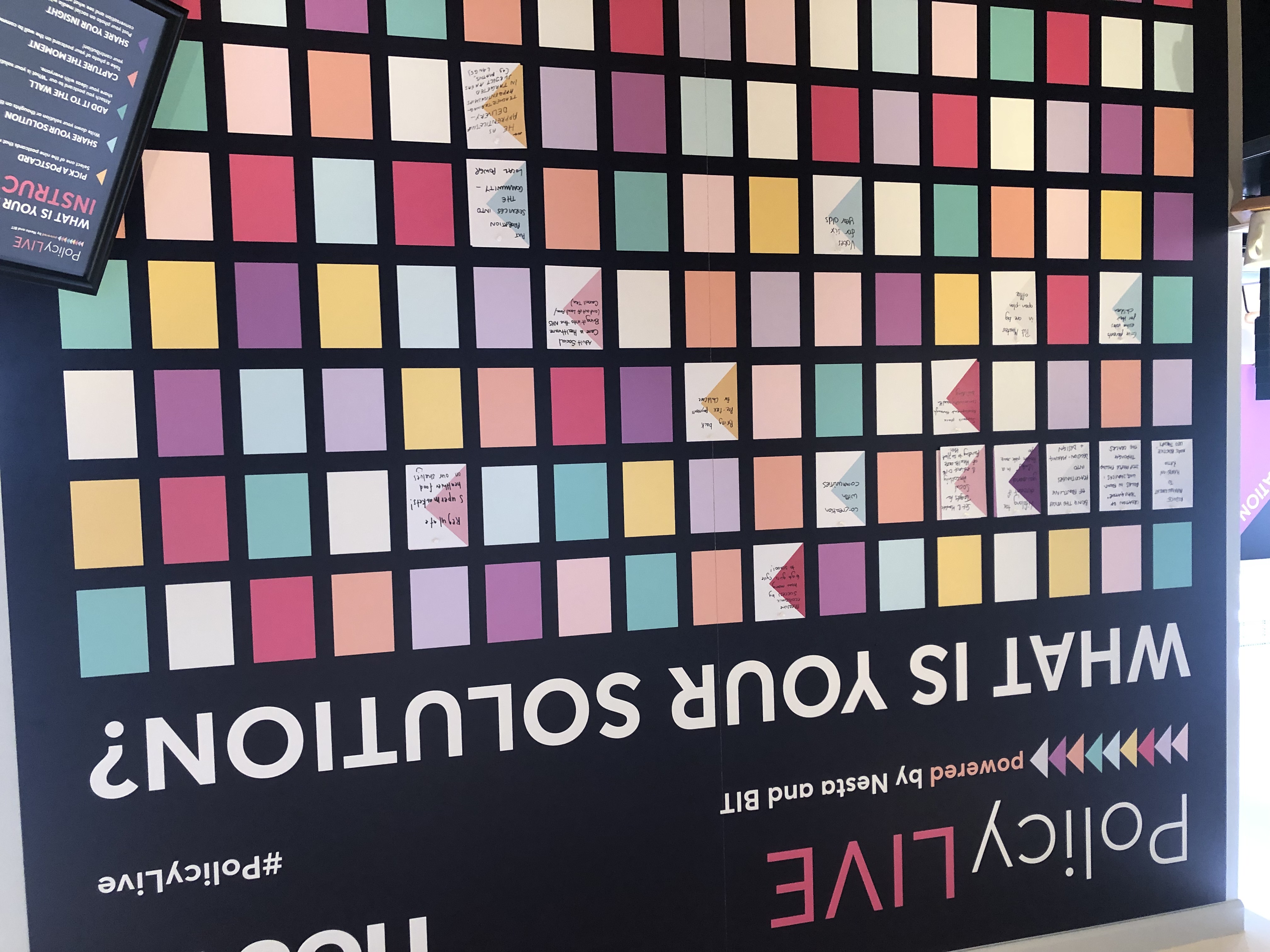
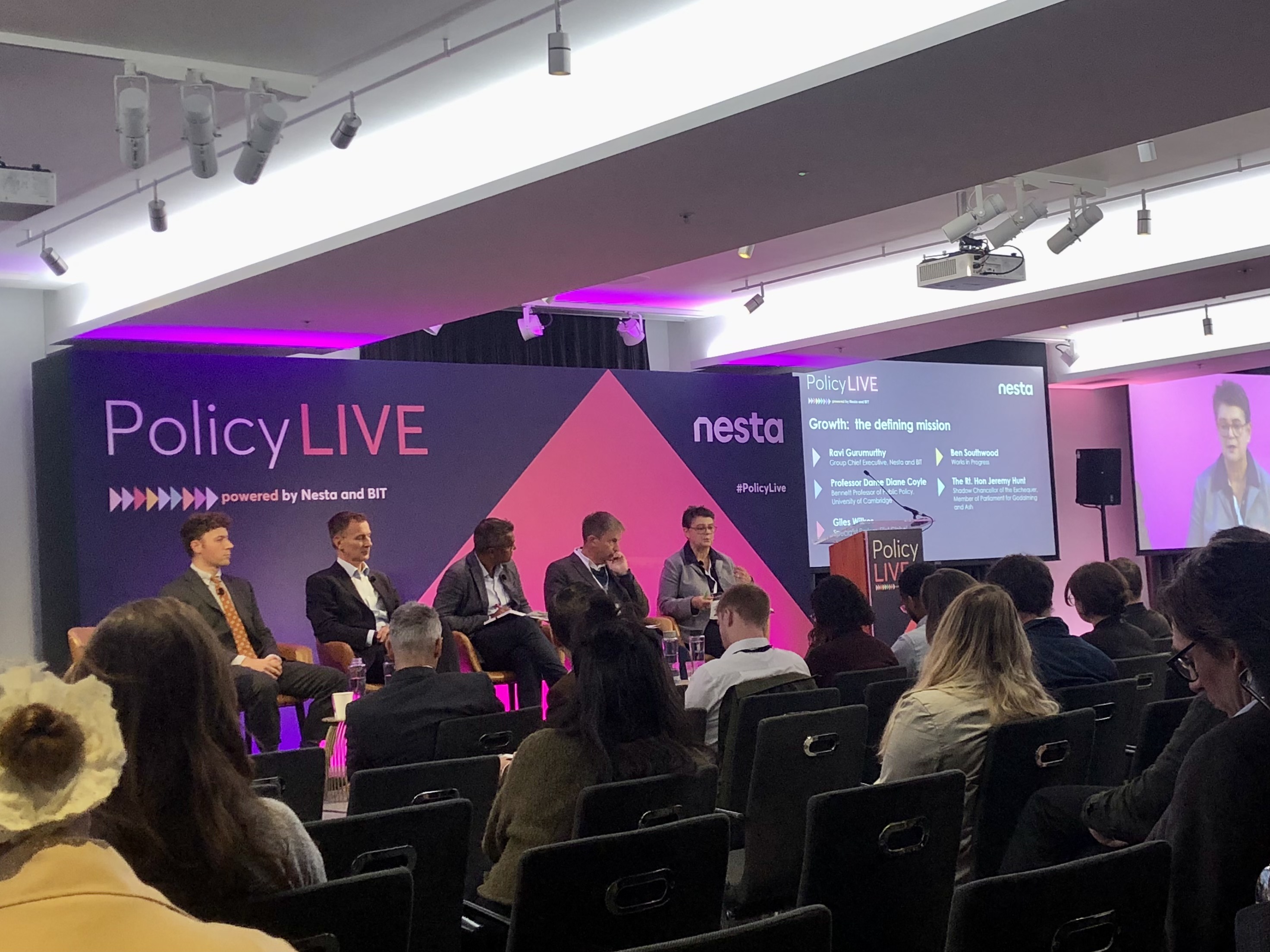
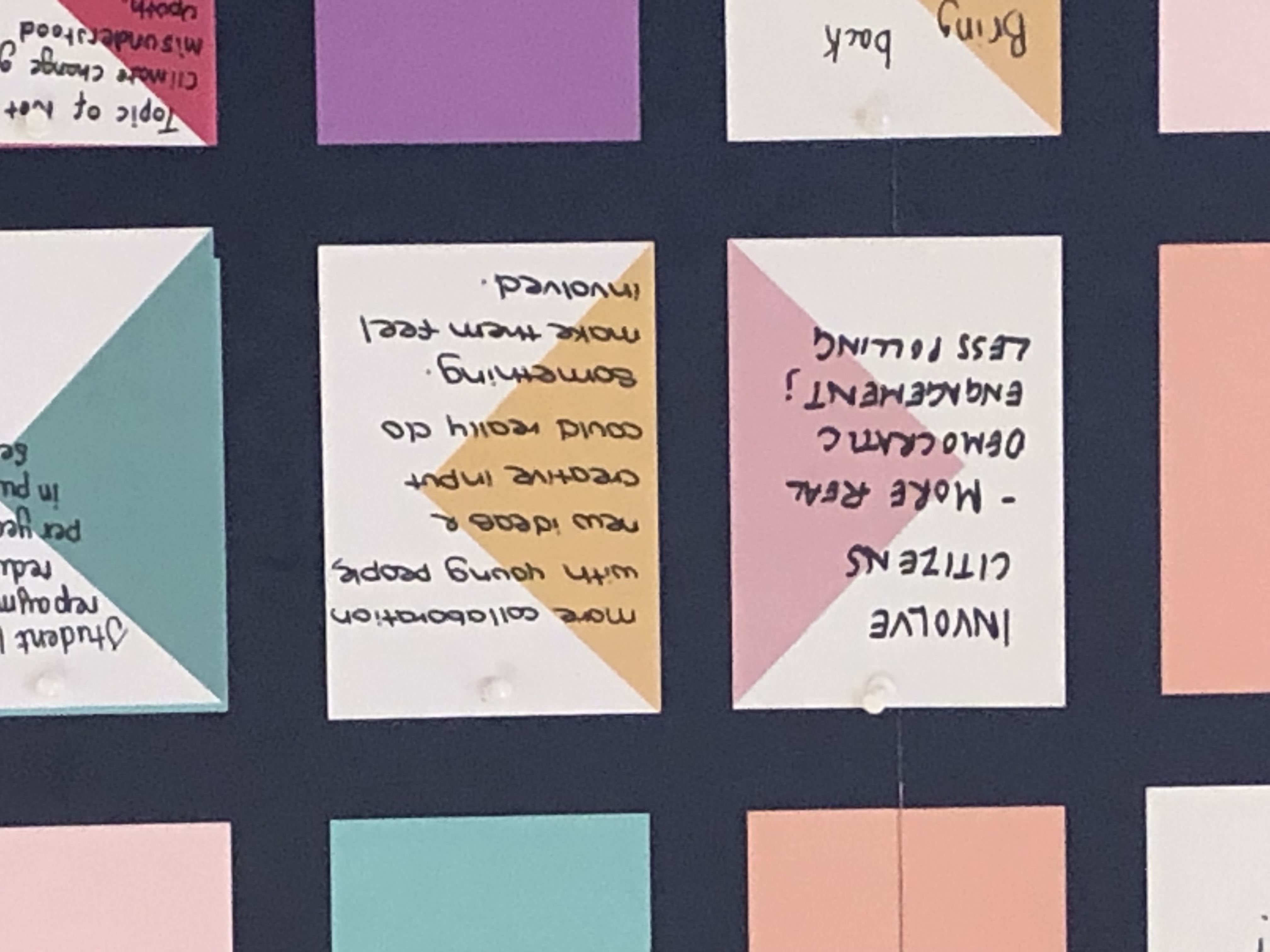
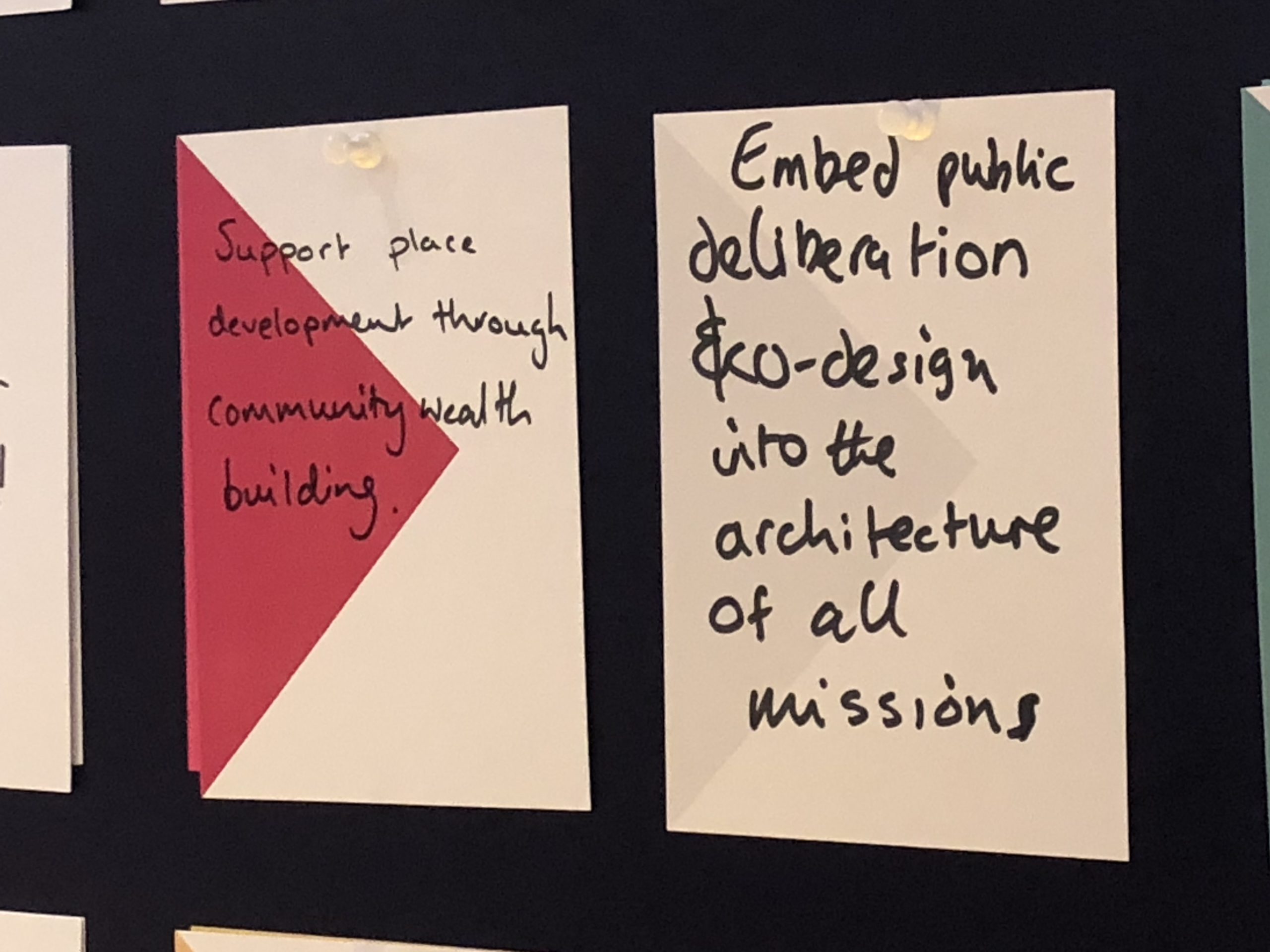
Brought to you by


